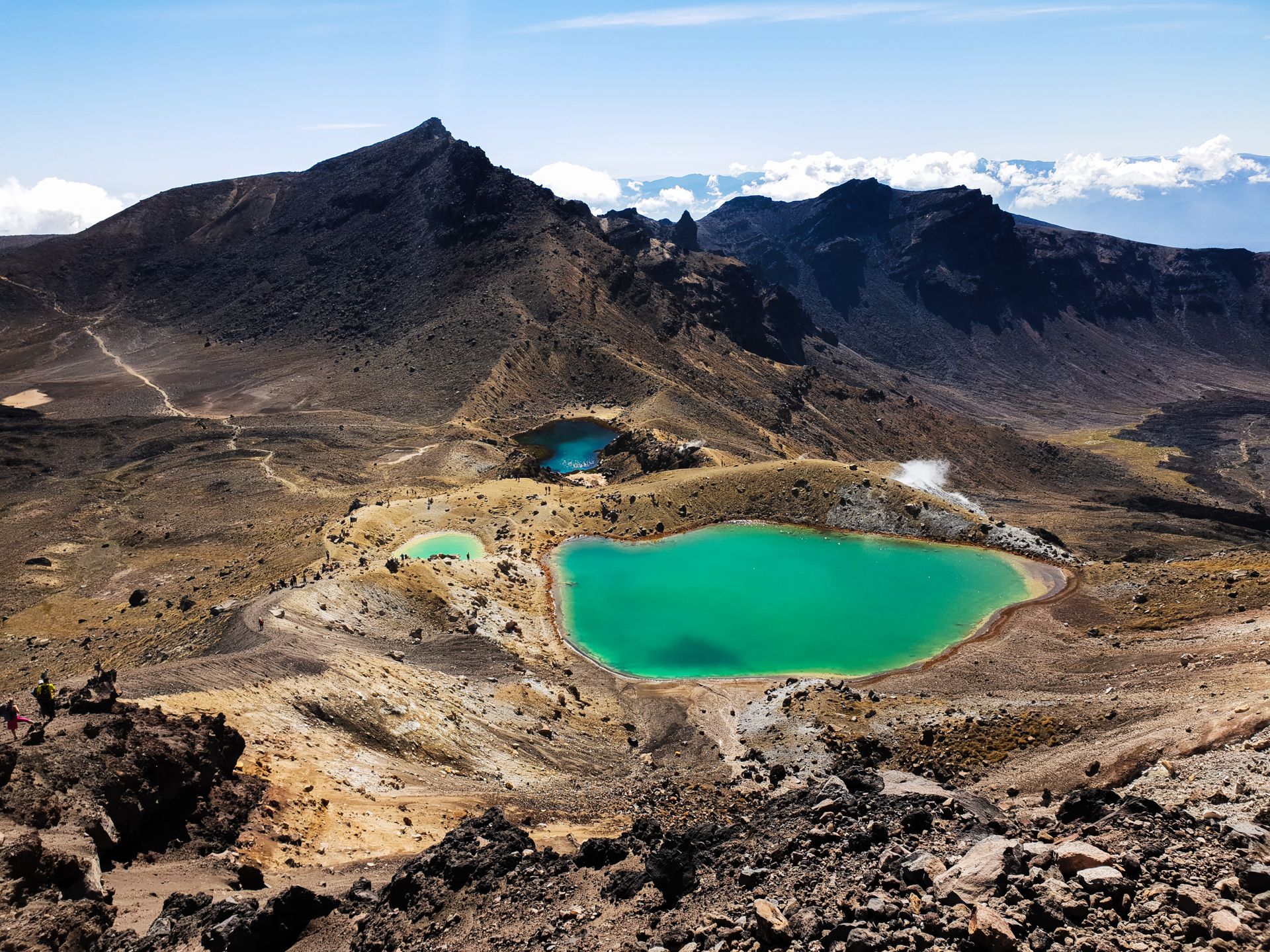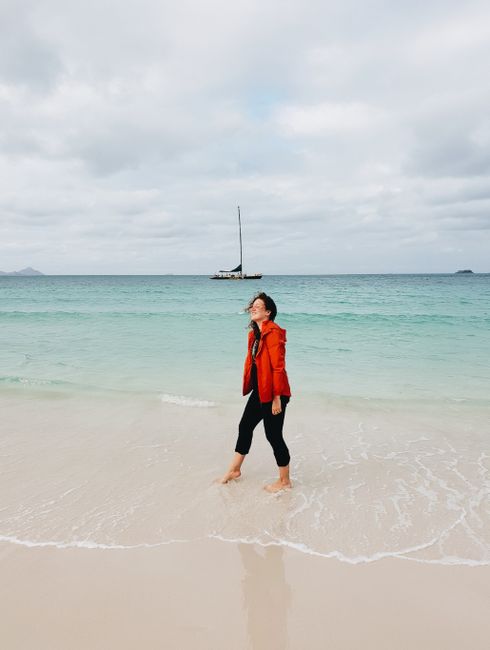My dreamscape - Great Ocean Road, Logan's Beach, Tower Hill National Park, Bay of Islands, Bay of Martyrs, The Grotto, London Bridge, 12 Apostles Day 1 / 14.01.2019
Được phát hành: 16.01.2019
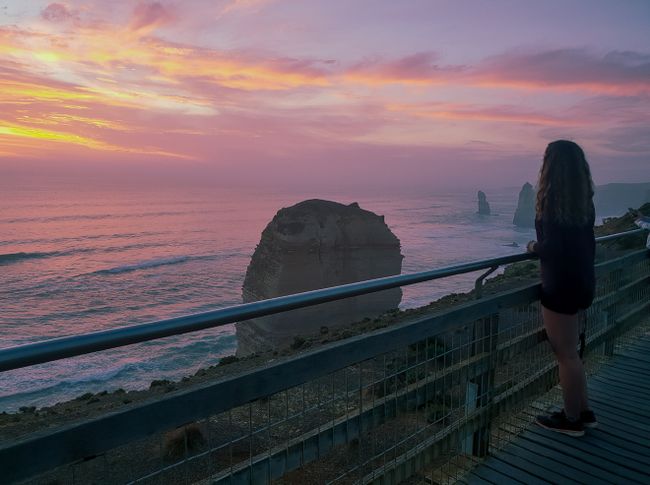
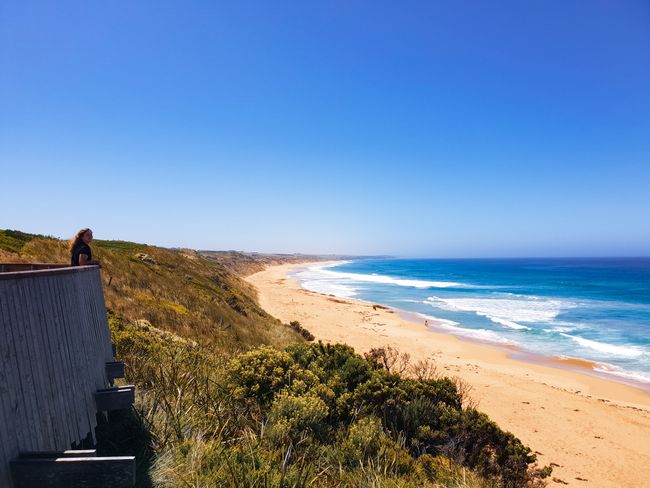
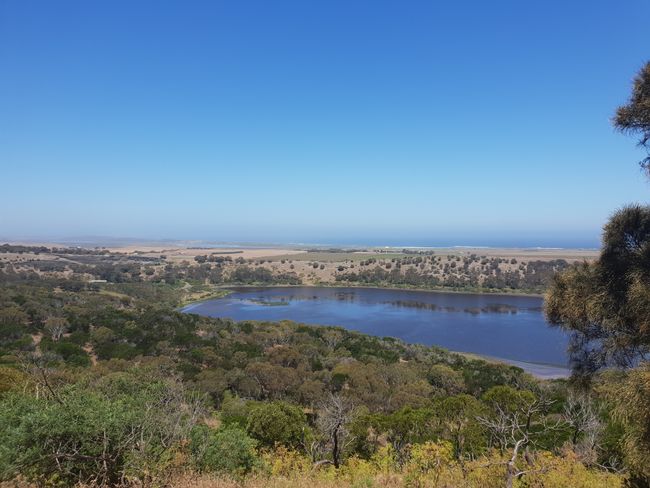
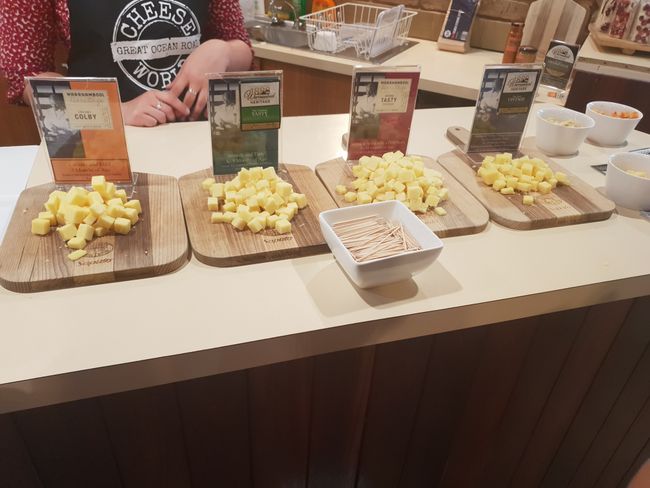
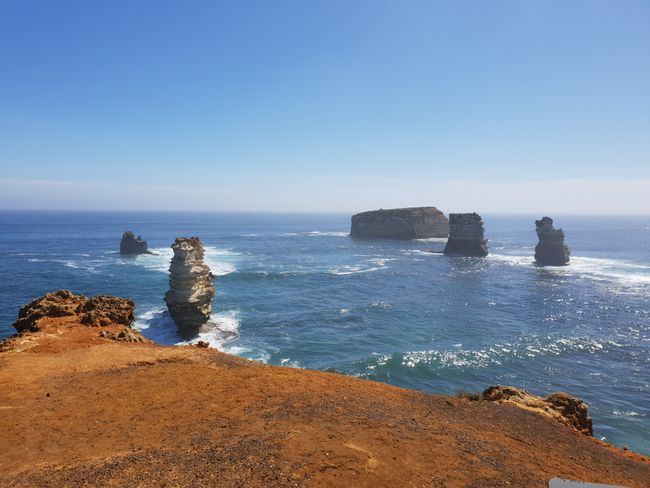
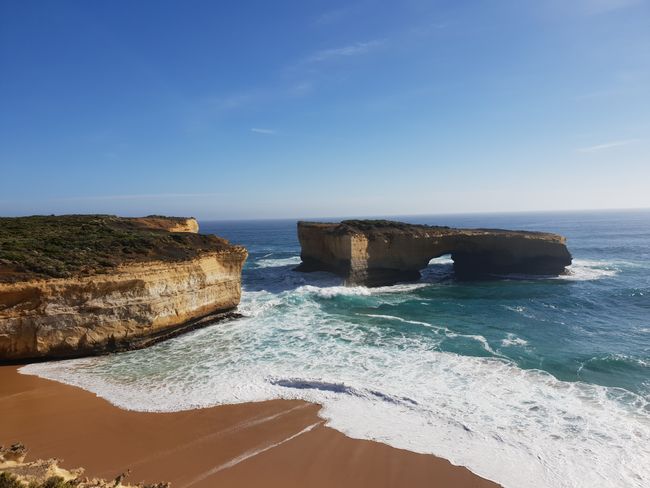
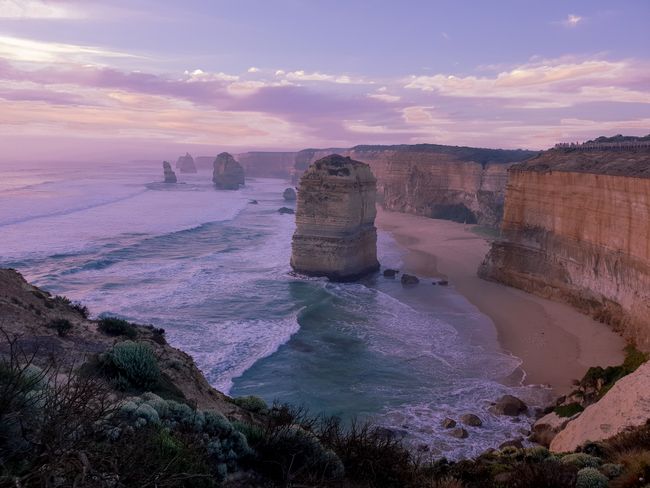
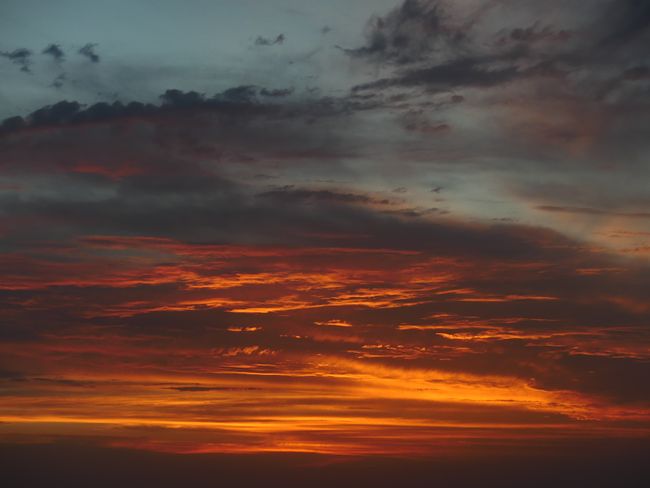
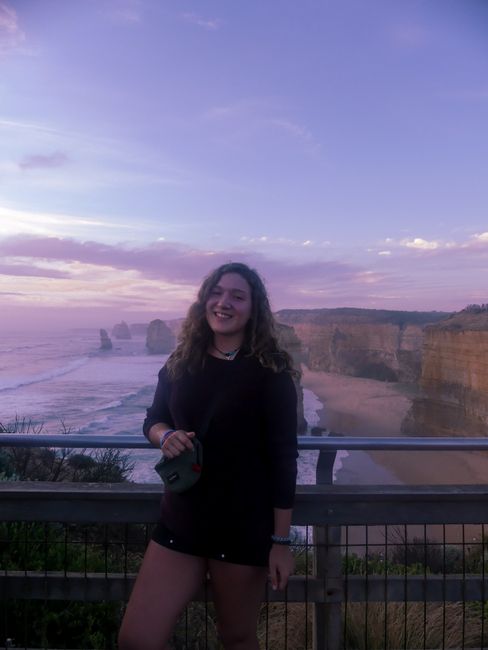
This morning I was picked up by a small sightseeing tour bus, with which we would explore the Great Ocean Road for the next 2 days.
The people were all very nice, but unfortunately there was no one my age, but I was able to talk to many people well - and what was cool was that with 18 people we had 13 different nationalities, a really mixed group.
Our guide introduced herself as Jude and was my first female group leader.
She explained to us that we would be driving the Great Ocean Road from back to front, because it was easier to have the long drive at the beginning, so we started with a 2-hour drive with a little tea break in a cute town called Lismore. But we had a pretty tight schedule, which we noticed over the next few days, so we quickly moved on.
Along the way, we could see one of many sleeping or completely dead volcanoes, Mount Elephant, which looked like an elephant from the side. This was a tectonic area, which I found quite interesting.
Then we went through the city of Warrnambool, which translates to "much water". The name was given by the indigenous people of the area because there really was a lot of water, for example the ocean, and many lakes and rivers. Aboriginal people had been living here for 30,000 years until they were driven off their land because of a whaling station. In winter, the whales always come here to have their babies in front of Australia.
So they were almost wiped out back then, until they had some time to recover in recent years.
Here we were led to Logan's Beach, a beautiful beach with a stunning view of the green coast from above. In winter, you can observe whales from here, but unfortunately not at this time. This beach was the starting point of the Great Ocean Road, and we were currently at its 3rd part, the Shipwreck Coast. It was called Shipwreck Coast because there were unpredictable sea conditions here, resulting in many ships sinking along this coast.
Then we went to Tower Hill National Park (Victoria's first national park), which is located in a dormant volcano, which is why the nature here was so extraordinary. There were many lakes and even more different animals - emus, kangaroos, koalas, black swans, and more - because there are so many food sources here.
Here we were able to take a short but steep and exhausting hike to the highest point. The view was definitely worth it, and I was very happy that the weather here was so different from that in Melbourne - it was over 35 degrees there, but here it was just below 30.
We also found 3 koalas here, including a baby, and there were also many free-roaming emus.
Further along the route, we were able to taste some free, delicious cheese at a cheese factory - Cheeseworld - which was unexpected but very welcome, because cheese is usually expensive here and who doesn't love cheese.
After we were properly fueled, we visited the Bay of Islands, where we saw the first limestone formations - limestone is made from marine skeletons and other sea things, which were compacted at the seafloor, then eventually exposed and shaped by wind, rain, and other forces. These formations were somewhat smaller than the famous 12 Apostles, but still beautiful and a taste of what we would see tonight when we watch the sunset at the 12 Apostles.
Afterwards, we continued to the Bay of Martyrs, which was named because in the past, the white settlers surprised and brutally attacked the indigenous people, tying them together and pushing them off the cliffs. A clan of about 3,000 Aboriginals eventually became just a tenth of what it was at the beginning, which was pretty terrible.
But the nature here was equally amazing - lots of green, the endless sea, and these beautiful limestone rocks and cliffs created an unforgettable image.
After that, we went to a place called The Grotto, where a wooden staircase led down the rocks to a hole in the stone behind a rock wall. It was a really intense moment when you disappeared behind the wall and suddenly couldn't hear the sound of the sea anymore, almost complete silence.
When you reached the bottom, you could see the sea through the large hole and take great photos, because nature had created a natural frame here.
The London Bridge afterward was also a really beautiful sight, although it was actually just called the London Arch now, because one natural bridge side collapsed into the sea a few years ago. Back then, you could still walk on it and miraculously, no one died when it collapsed into the depths. But we had to leave here pretty quickly because we had to get to the hostel in a small town in time for dinner and not be late for the sunset at the 12 Apostles.
We had chicken, various green salads, pasta salad, and rice with curry, and we could all eat until we were full.
Now we quickly set off because it was already quite late, and luckily we arrived on time - unfortunately, many other people had the same idea. We could almost always enjoy all the other stops on our own, but here there was quite a crowd. Nevertheless, the view was simply stunning, and after the sun had set with the most otherworldly shades of pink, red, and orange, and I was practically just a melting puddle because I found the sight so beautiful, we waited for a while until the penguins would come out of the water onto the beach. They were very small, so you could only see moving spots, but you could see that many of them gathered in one place to waddle from the safe water to their nightly resting places.
However, a cool photographer named TJ had the fattest lens ever with his camera, so we could see them really well again and they were really cute.
Later in bed, I was really tired, but I just couldn't fall asleep because even though there were only other girls from my group in my room, it felt like everyone was snoring. You think you're finally going to have a snore-free night, but no, life laughs in your face and enjoys being mean.
Song of the day: With or Without You by U2, because Jude played a lot of these old songs on the bus and I somehow like them.
Trả lời
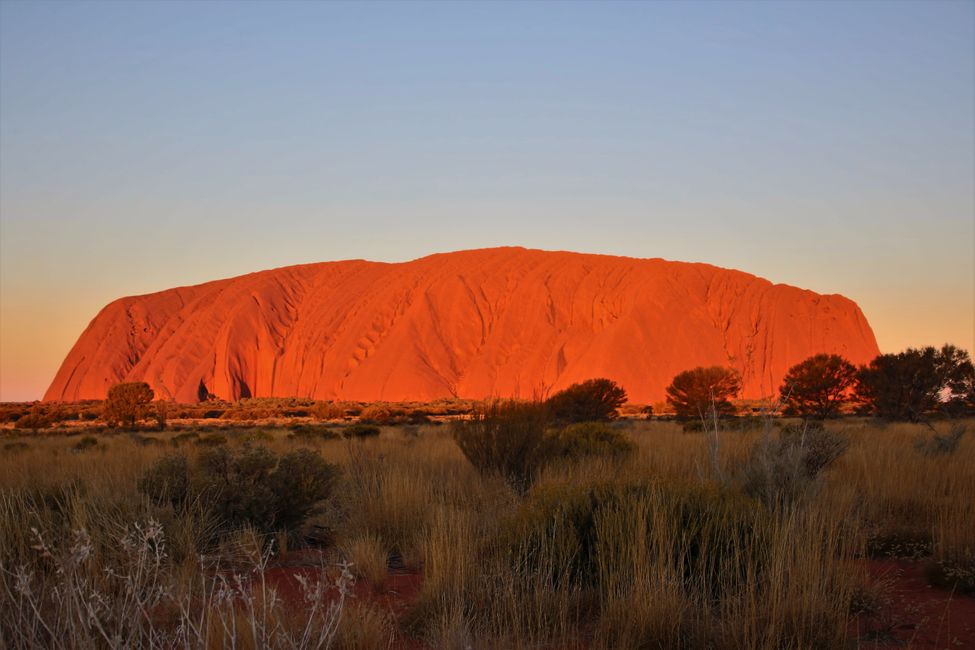
Báo cáo du lịch Châu Úc
